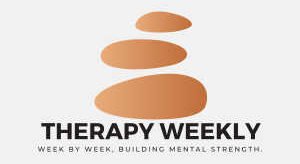
Depression is a complex mental health condition that affects millions worldwide. Its impact can be debilitating, affecting every aspect of one’s life, from work to relationships. However, there is hope. Cognitive Behavioral Therapy (CBT) has emerged as a highly effective approach for managing and alleviating symptoms of depression. In this article, we’ll delve into practical CBT techniques that can empower individuals to take control of their mental health and lead fulfilling lives.
Understanding Depression
Before delving into CBT techniques, it’s crucial to understand depression. It’s not merely feeling sad; rather, it encompasses a persistent feeling of hopelessness, loss of interest in activities once enjoyed, changes in appetite or sleep patterns, and difficulty concentrating. Depression can stem from various factors, including biological, environmental, and psychological triggers.
The Power of Cognitive Behavioral Therapy
CBT is a widely recognized and evidence-based therapy that focuses on changing negative thought patterns and behaviors. It operates on the principle that our thoughts, feelings, and behaviors are interconnected, and by altering our thoughts and behaviors, we can positively influence our emotions. Unlike traditional talk therapy, CBT is structured, goal-oriented, and typically time-limited, making it highly effective for managing depression.
CBT Techniques for Managing Depression
- Identifying Negative Thought Patterns (Cognitive Restructuring)
- Begin by identifying negative thought patterns, such as catastrophizing or black-and-white thinking.
- Challenge these thoughts by examining evidence for and against them.
- Replace negative thoughts with more balanced and realistic ones.
- Behavioural Activation
- Engage in activities that once brought pleasure or a sense of accomplishment, even if you don’t feel like it initially.
- Create a schedule of enjoyable and meaningful activities to increase motivation and combat lethargy.
- Mindfulness and Relaxation Techniques
- Practice mindfulness meditation to cultivate awareness of the present moment and develop a non-judgmental attitude towards thoughts and feelings.
- Incorporate relaxation techniques such as deep breathing exercises or progressive muscle relaxation to reduce stress and promote a sense of calm.
- Graded Exposure
- Gradually expose yourself to situations or activities that provoke anxiety or fear.
- Start with less challenging situations and progressively work towards more anxiety-provoking ones, building confidence along the way.
- Social Skills Training
- Develop and refine interpersonal skills, such as assertiveness and effective communication, to enhance social interactions and relationships.
- Seek out opportunities for social support and connection, whether through friends, family, or support groups.
The Role of Person-Centered Counselling
While CBT is highly effective for many individuals, it’s essential to acknowledge that therapy is not one-size-fits-all. Person-Centered Counselling, pioneered by Carl Rogers, emphasises the importance of empathy, unconditional positive regard, and genuineness in the therapeutic relationship. Unlike CBT’s structured approach, Person-Centered Counselling provides a safe and supportive space for individuals to explore their thoughts, feelings, and experiences at their own pace.
Integration of CBT and Person-Centered Counselling
While CBT and Person-Centered Counselling may seem distinct, they can complement each other effectively. Integrating elements of both approaches allows for a tailored and holistic therapeutic experience. For example, a therapist may incorporate CBT techniques such as cognitive restructuring while maintaining a person-centered approach by fostering a supportive and empathetic therapeutic alliance.
Conclusion
Depression can feel overwhelming, but it’s essential to remember that help is available. By incorporating practical CBT techniques and considering the benefits of Person-Centered Counselling, individuals can embark on a journey towards healing and recovery. Whether seeking professional therapy or exploring self-help strategies, taking proactive steps towards managing depression can lead to a brighter and more fulfilling future.



